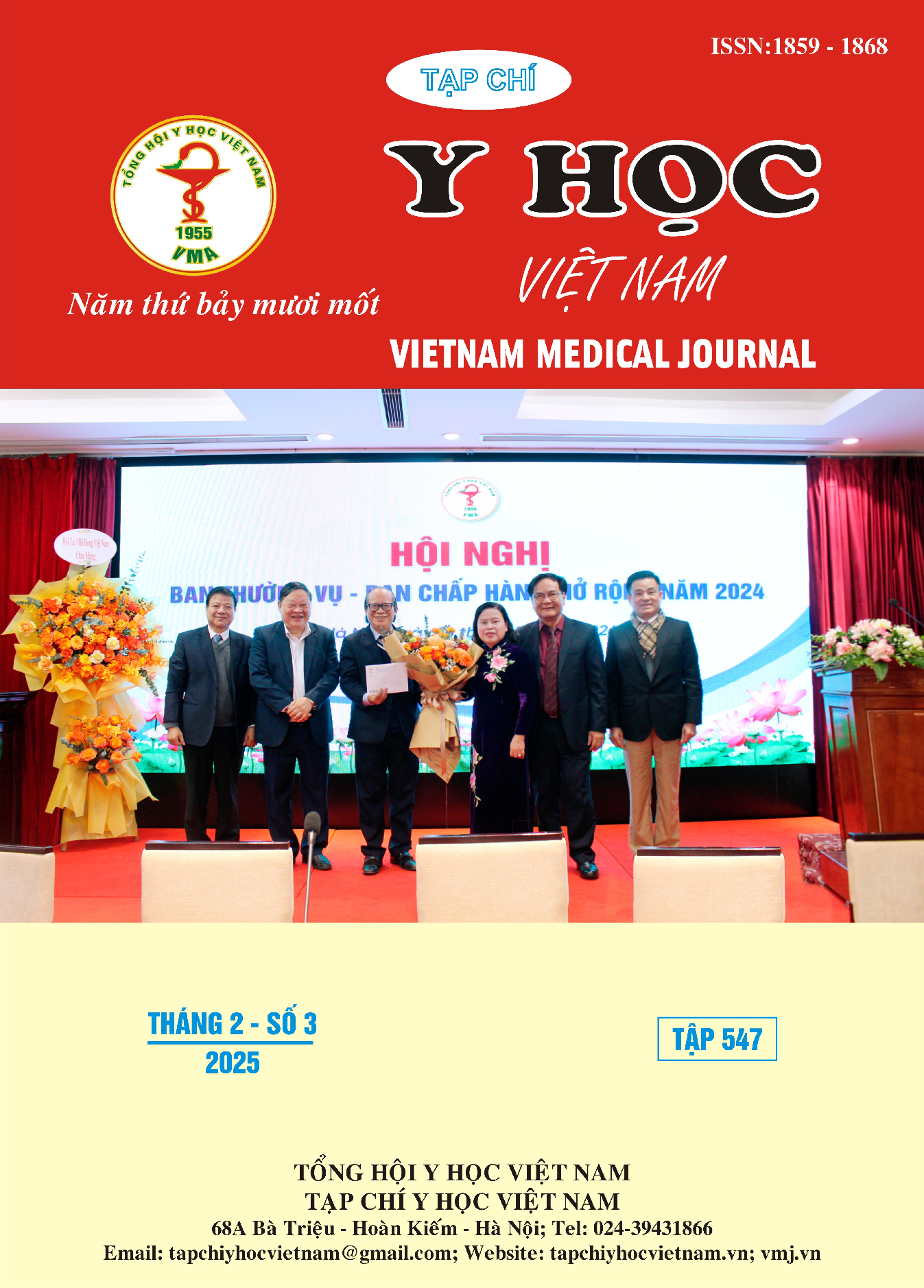PHARMACOTHERAPY IN THE ACUTE PHASE TREATMENT OF PATIENTS WITH RECURRENT DEPRESSIVE DISORDER
Main Article Content
Abstract
Currently, there are many methods applied in the acute phase treatment of a depressive episode. Pharmacotherapy, especially selective serotonin reuptake inhibitors antidepressants, remains the most frequent option for treating depression during the acute phase. The study was conducted on 109 patients diagnosed with recurrent depressive disorder according to the ICD-10 (1992) criteria, who were hospitalized at the Institute of Mental Health - Bach Mai Hospital from January 2020 to December 2021. The study used a cross-sectional descriptive research method. The results obtained: the proportion of female patients was 72.48%; the majority of patients had experienced two episodes of depression by the time of hospitalization (56.88%). Among the pharmacological treatment method recorded, the combination of antidepressants with antipsychotics and anxiolytics was the most common (91.74%). 100% of patients with recurrent depression were prescribed antidepressants, with Sertraline being the most frequently used. Mood stabilizers were rarely used clinically (2.75%). No patients in the study were using stimulant medications. HAM-D scores decreased gradually from the time of admission, after 2 weeks of treatment and after 4 weeks of treatment. It can be said that the pharmacological intervention in the study group is consistent with major treatment guidelines in Vietnam and around the world.
Article Details
Keywords
pharmacotherapy, treatment, acute phase, recurrent depressive disorder
References
2. Stahl SM. Stahl’s Essential Psychopharmacology Neuroscientific Basis and Practical Application. 4th ed. Cambridge University Press; 2013.
3. Karrouri R, Hammani Z, Benjelloun R, Otheman Y. Major depressive disorder: Validated treatments and future challenges. World J Clin Cases. 2021;9(31):9350-9367. doi:10. 12998/wjcc.v9.i31.9350
4. Rohan KJ, Rough JN, Evans M, et al. A Protocol for the Hamilton Rating Scale for Depression: Item Scoring Rules, Rater Training, and Outcome Accuracy with Data on its Application in a Clinical Trial. J Affect Disord. 2016;200:111-118. doi:10.1016/j.jad.2016.01.051
5. Zu S, Wang D, Fang J, et al.
Comparison of Residual Depressive Symptoms, Functioning, and Quality of Life Between Patients with Recurrent Depression and First Episode Depression After Acute Treatment in China
. Neuropsychiatr Dis Treat. 2021;17:3039-3051. doi:10.2147/NDT.S3177706. Nuggerud-Galeas S, Sáez-Benito Suescun L, Berenguer Torrijo N, et al. Analysis of depressive episodes, their recurrence and pharmacologic treatment in primary care patients: A retrospective descriptive study. PLoS ONE. 2020;15(5): e0233454. doi:10.1371/journal. pone.0233454
7. Lam RW, Kennedy SH, Adams C, et al. Canadian Network for Mood and Anxiety Treatments (CANMAT) 2023 Update on Clinical Guidelines for Management of Major Depressive Disorder in Adults: Réseau canadien pour les traitements de l’humeur et de l’anxiété (CANMAT) 2023 : Mise à jour des lignes directrices cliniques pour la prise en charge du trouble dépressif majeur chez les adultes. Can J Psychiatry Rev Can Psychiatr. 2024;69(9): 641-687. doi:10.1177/ 07067437241245384
8. Alenko A, Markos Y, Fikru C, Tadesse E, Gedefaw L. Association of serum cortisol level with severity of depression and improvement in newly diagnosed patients with major depressive disorder in Jimma medical center, Southwest Ethiopia. PLoS ONE. 2020;15(10):e0240668. doi:10.1371/journal.pone.0240668


